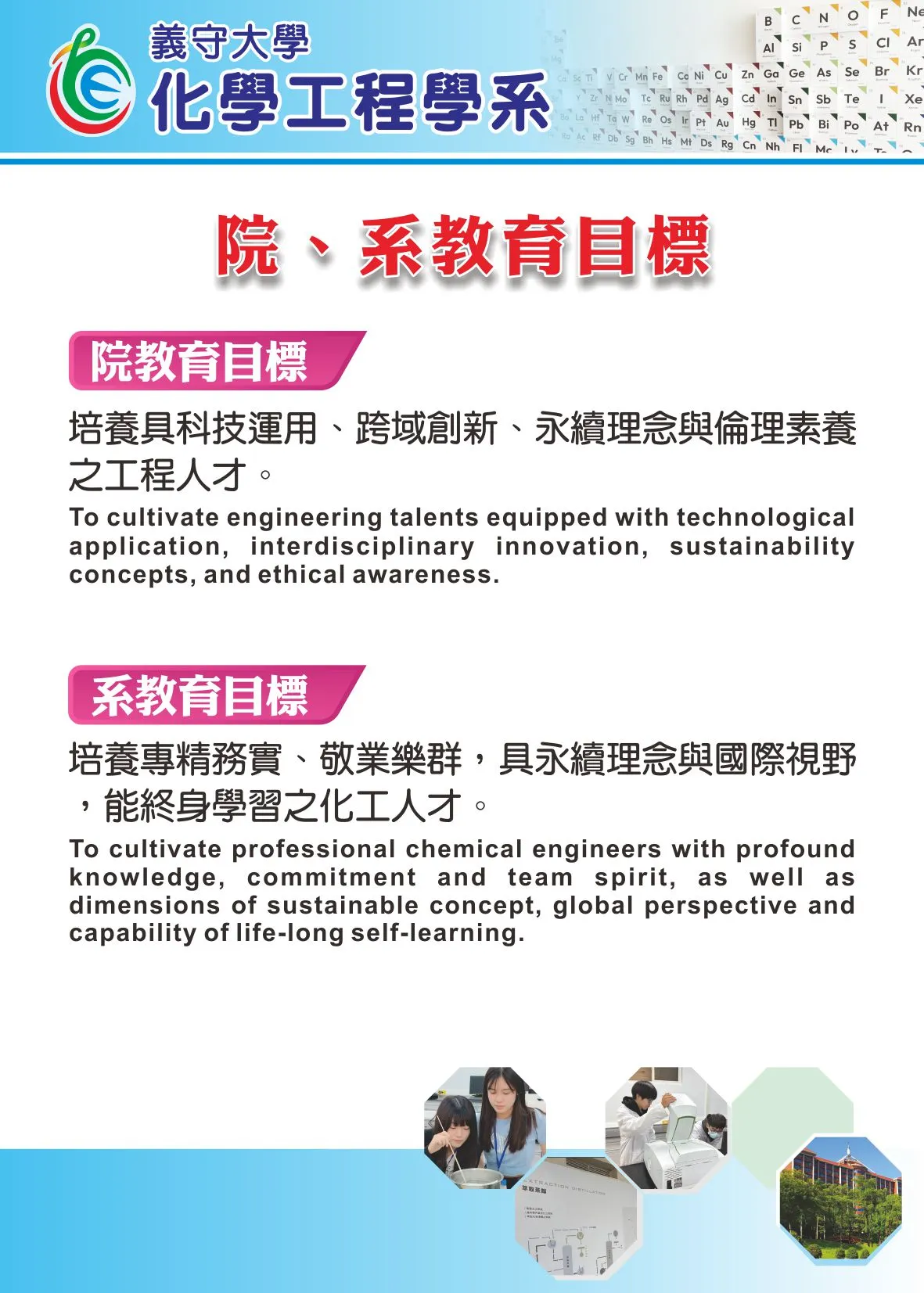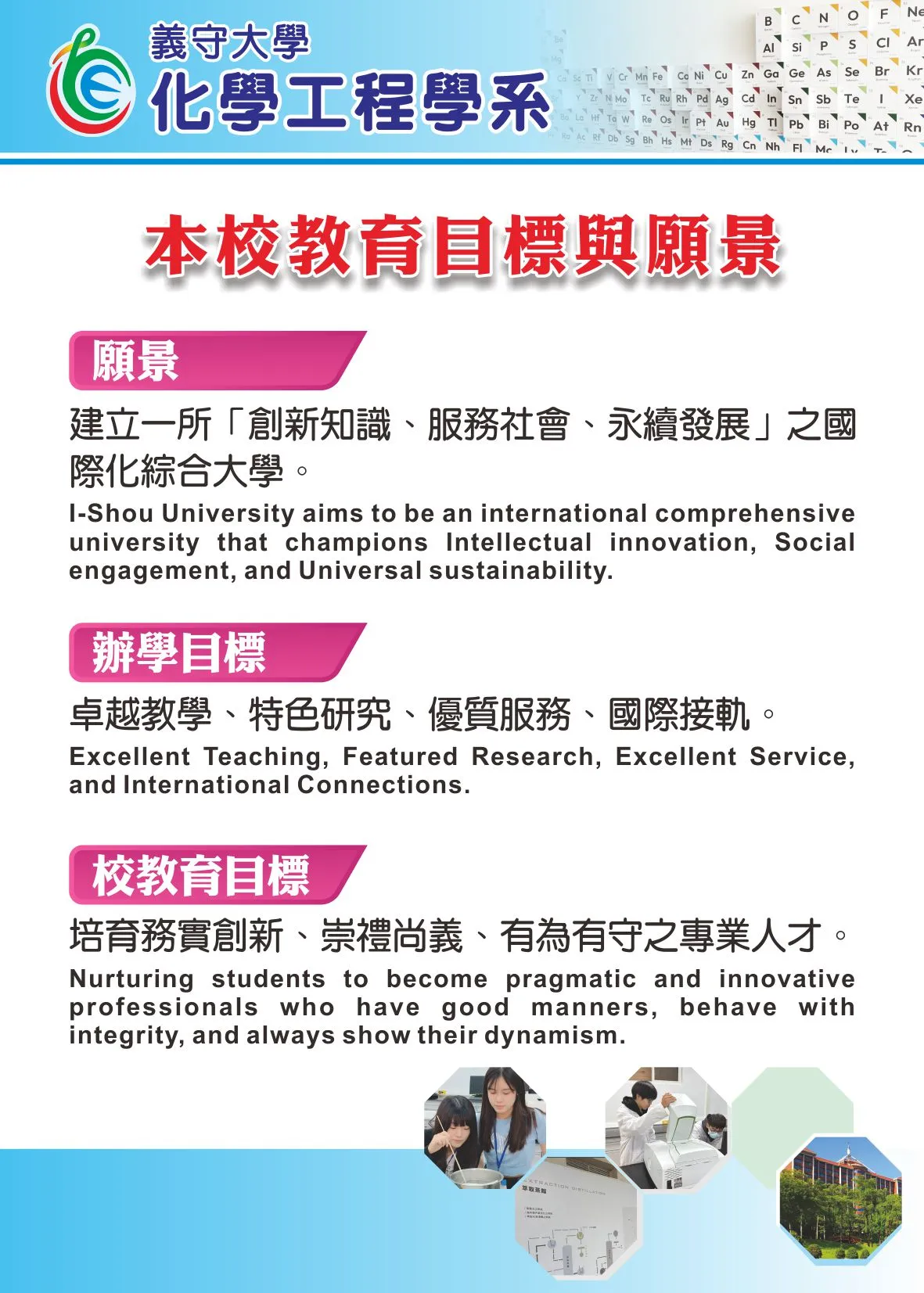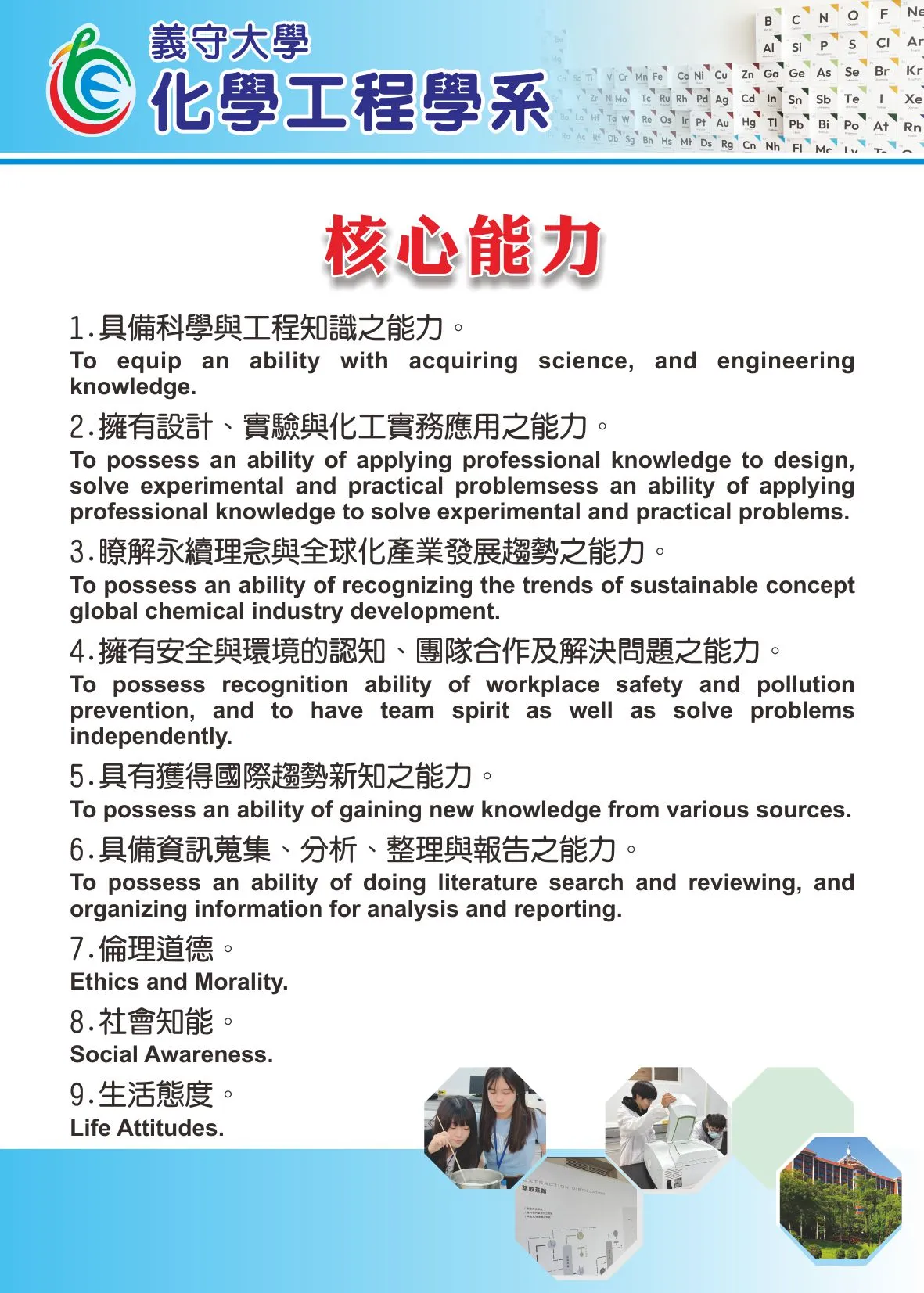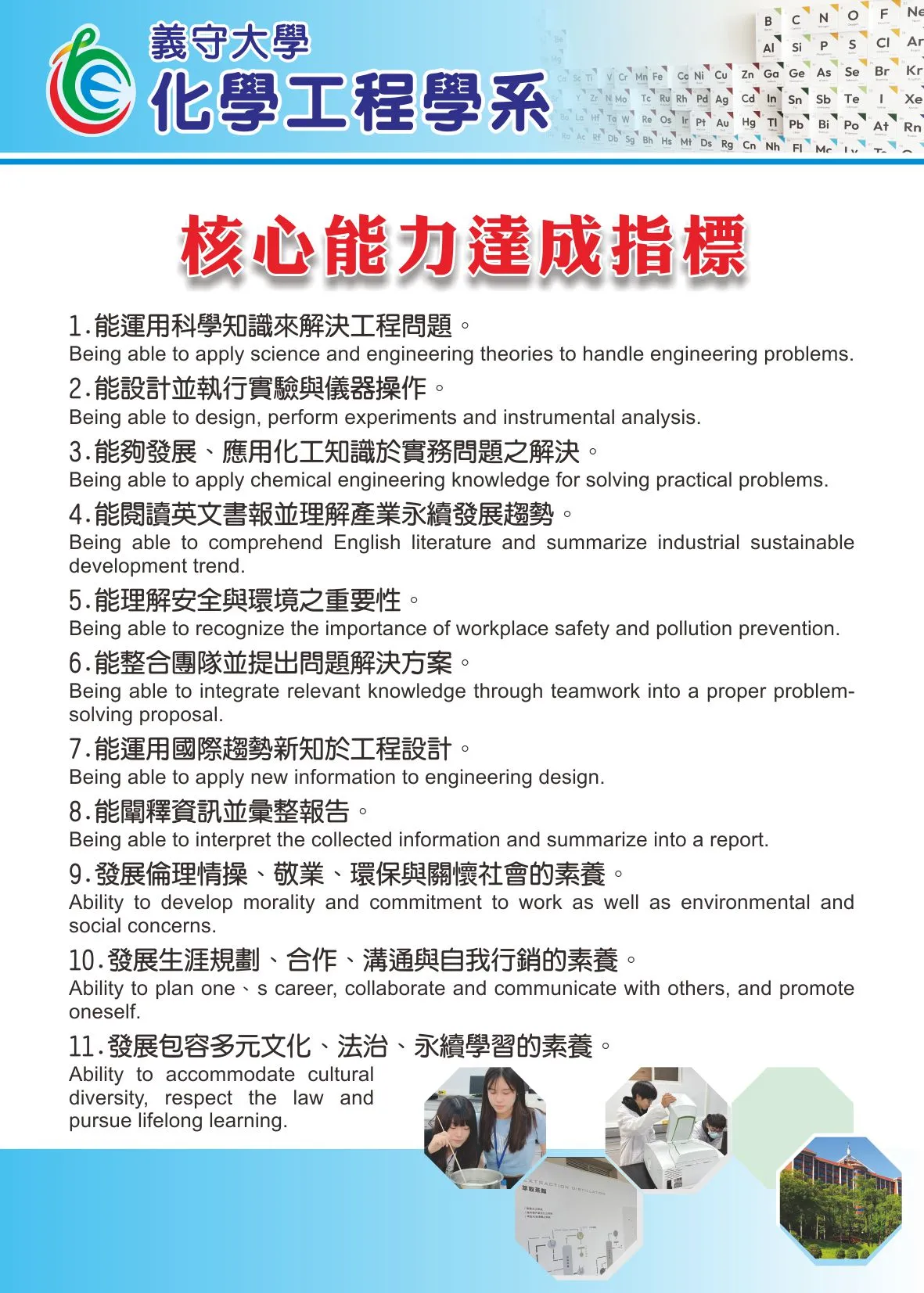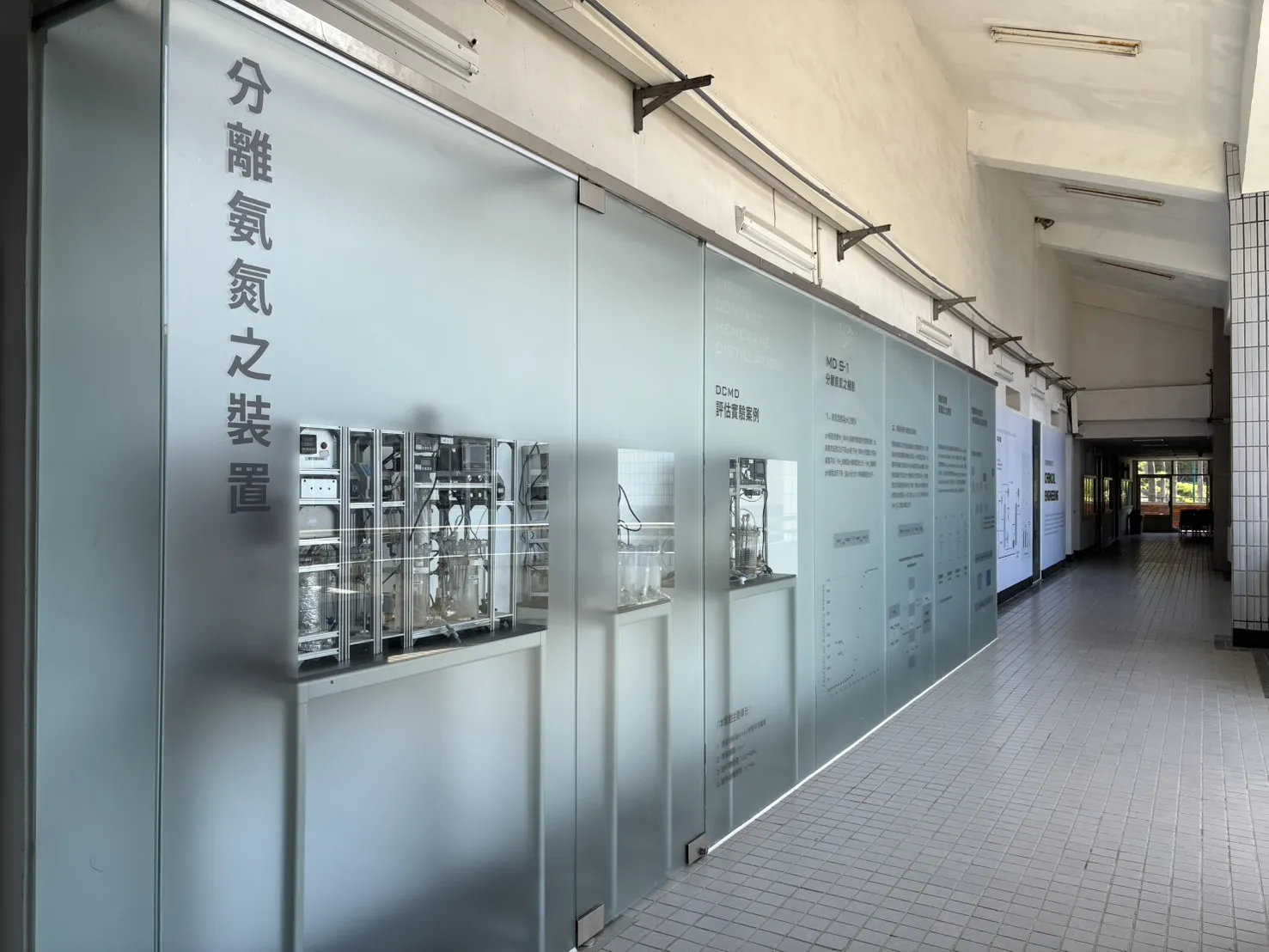
Department Overview
Curriculum Planning and Features
The Department’s curriculum has undergone multiple revisions, focusing on reducing the number of required credits while expanding elective courses to enhance learning efficiency. Based on a foundation of core chemical engineering knowledge, the Department currently requires 128 credits for graduation (92 required and 36 elective credits). The Department regularly reviews student learning outcomes and performance to refine the curriculum.
The Department boasts a team of 12 full-time faculty members, all of whom hold professional qualifications, ensuring comprehensive expertise across various specialties. Accredited by international engineering education standards, the Department emphasizes both theoretical and practical training. In addition to biotechnology, the Department focuses on nurturing talent in chemical engineering, particularly in pharmaceutical biotechnology, biomedical materials, and energy-saving carbon reduction research. Industry collaborations and research publications provide students with a high-quality learning and research environment.

Research Areas
Pharmaceutical Biotechnology Research
• Natural Products and Herbal Medicine:
Natural products and herbal medicine, known for their significant biochemical activities, are widely regarded as critical sources for health supplements. This research explores the active components of natural products and herbs to verify their biochemical activities and efficacy. By identifying active compounds and conducting pharmacological and safety testing, the goal is to develop these materials into health supplements or new pharmaceuticals. This collaborative research involves faculty with expertise in biochemical separation, nutritional biochemistry, biotechnology, and clinical medicine, working alongside physicians from E-Da Hospital.

Biomedical Materials Research
• Development of technologies such as cell disease markers, non-enzymatic glucose detection, non-invasive early-stage osteoarthritis diagnostics, and related cartilage disease detection.
• Applications include calcium ion and gas sensors, with techniques based on fluorescence methods, electrochemical analysis, quartz crystal microbalance, and semiconductors. These biosensing systems integrate functional nanostructured materials with electrochemical, surface analysis, and microfabrication technologies to enhance functionality.

Green Energy Technology Research
•The research focuses on energy-saving and carbon reduction technologies, including catalyst production, reactor design, and process optimization. Key areas include:
•Solar cells, fuel cells, and lithium battery research
•Bioenergy development
•Green product manufacturing
•Greenhouse gas recycling (e.g., using CO2 as a raw material to develop high-value chemical products like polycarbonate)
•The research aims to promote resource integration and recycling through eco-industrial planning.
